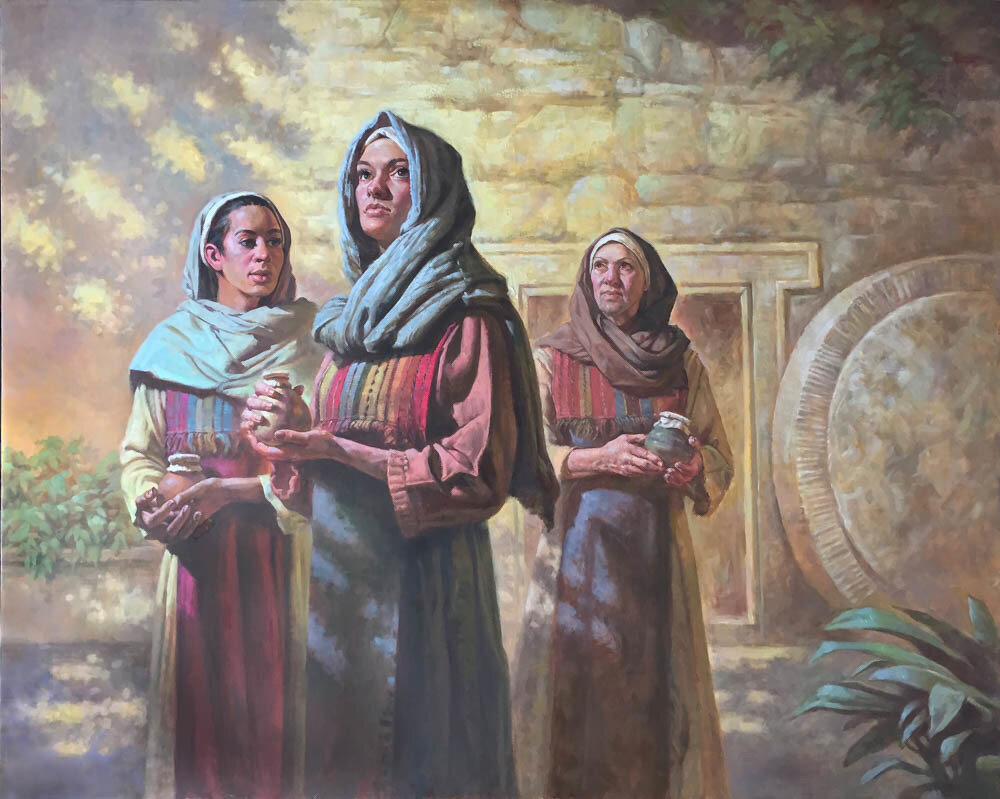Robert T Barrett, Three Women at the Tomb
I’m sure we are not all control freaks, but the inclination to want to have control over things is alive and well in most of us. This is what makes a pandemic regime so difficult, where large swaths of our lives have fallen out of our careful management and uncertainties abound. To the surprise and bemusement of my housemates here in Brighton, I vociferously gave voice to my feelings at dinner last week, “I HATE THIS!”
Celebrating the Easter mystery during these weeks seems providential. What permeates the Easter readings is the Risen Lord who comes and goes in sovereign freedom and the Holy Spirit who blows where he wills. None of the efforts to domesticate the divine presence, to accommodate it to the accustomed measure of time and space, is of any avail. The difference between Christmas and Easter in this respect is striking. At Christmas, we are invited to go to the manger to behold a God who makes himself available to us in his frail humanity. At Easter, the initiative is all on God’s side, opening eyes darkened by dull familiarity to the radiance of his divinized humanity.
What happens, then, when we are drawn into the Easter mystery? I think we discover the price we pay for trying to live our lives on our own terms. The various images for the fruits of the resurrection brought forward, one after the other, during this season – water, bread, good shepherd, love – are all in service of that “abundant” life that is Easter’s unsurpassable gift. Flowing from this are the peace and joy that none of our worldly troubles can take away. By comparison, insisting on imposing control over our lives and clinging to what is familiar – both hard-wired into our fallen nature – are the path to diminishment and sadness.
Letting go is about the hardest thing we have to do. But it is the condition for truly living from the new life that God desires and makes possible for us. Here the pandemic, strangely enough, may be on our side. The remarkable speed with which our vaunted economy has been upended, and along with it, a whole array of certainties that, for better or worse, anchored our lives, is a shock to the system. We no longer feel so in charge of things, and mortal life rather suddenly appears to us as, well, mortal. This sounds like dis-illusionment in its deeper, more hopeful meaning – separating the wheat of our utter dependence on God from the chaff of our presumed self-sufficiency.
We find ourselves believing and rejoicing in the Lord’s resurrection, but reluctant to trust completely in it. Like the women at the tomb, we are fearful and joyful – a strange mix, to be sure, but pointing to both the heart’s desire for abundant life and its reluctance to give up control and familiarity. Is it too much to hope that our “shelter in place” world will crack open our resistance and open us to the embrace of life eternal?
